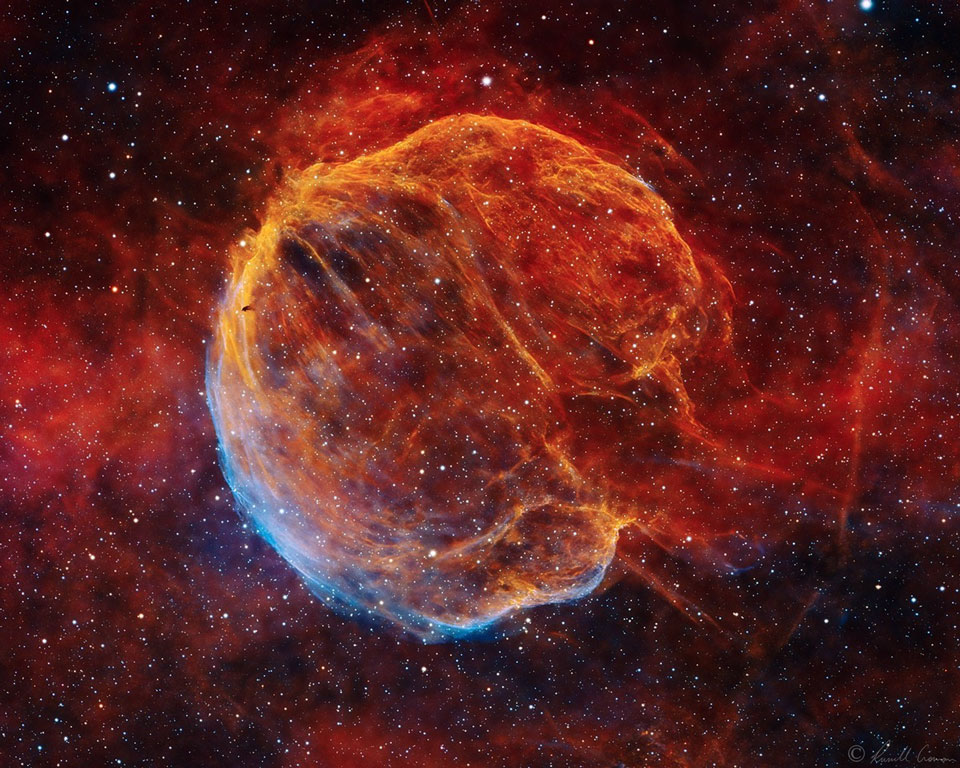2021年01月18日
The Medulla Nebula Supernova Remnant
Image Credit & Copyright: Russell Croman
Explanation: What powers this unusual nebula? CTB-1 is the expanding gas shell that was left when a massive star toward the constellation of Cassiopeia exploded about 10,000 years ago. The star likely detonated when it ran out of elements, near its core, that could create stabilizing pressure with nuclear fusion. The resulting supernova remnant, nicknamed the Medulla Nebula for its brain-like shape, still glows in visible light by the heat generated by its collision with confining interstellar gas. Why the nebula also glows in X-ray light, though, remains a mystery. One hypothesis holds that an energetic pulsar was co-created that powers the nebula with a fast outwardly moving wind. Following this lead, a pulsar has recently been found in radio waves that appears to have been expelled by the supernova explosion at over 1000 kilometers per second. Although the Medulla Nebula appears as large as a full moon, it is so faint that it took 130-hours of exposure with two small telescopes in New Mexico, USA, to create the featured image.
Tomorrow’s picture: moon and planets
超新星遗迹─延髓星云
影像提供与版权: Russell Croman
说明: 是什么在驱动这个不寻常的星云? CTB-1是大约10,000年前,仙后座方向一颗大质量恒星发生爆炸,所留下来的扩张气壳。这颗恒星之所以发生爆炸,则是它核心附近用来进行核聚变、产生压力保持结构稳定的元素耗尽。所形成的超新星遗迹,因为形似延髓而有延髓星云的称号,而至如今在可见光波段,仍能见到扩张碎片云冲撞周遭星际气体所发出的光。至于这团星云为何会发出X射线辉光,仍然是待解的谜团。诸多假说之一宣称,在这颗恒星爆炸同时产生的波霎,也在以快速外扩的恒星风驱动这团星云。循着这个线索,最近真的在电波波段找到一颗、看似在超新星爆炸时以每秒超过1000公里高速抛出的波霎。虽然延髓星云的张角和满月相当,不过它极端昏暗,位在美国新墨西哥州的2部小望远镜,进行了130小时的曝光才建构出这幅主题影像。 (Medulla Nebula 延髓星云)
明日的图片: moon and planets



